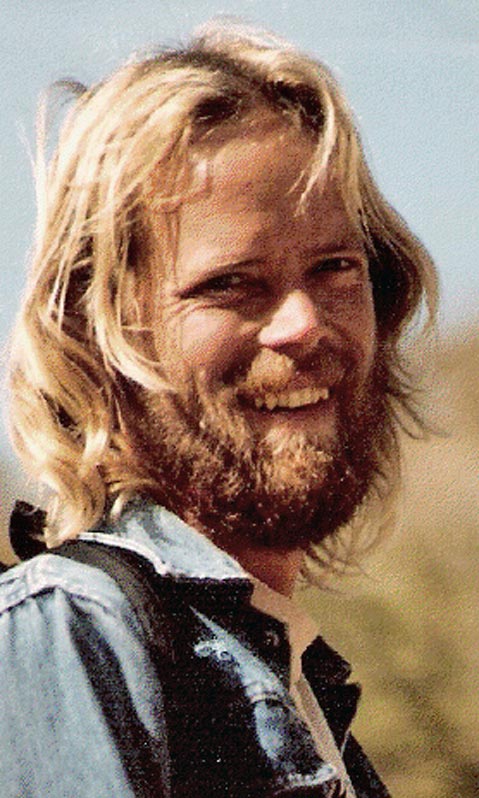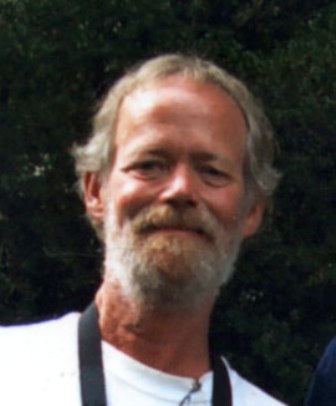Although Mike Shobe did pass on to some very pearly gates on the Saturday before Thanksgiving, we have not completely lost him. He was a legendary figure in our community, and legends never die. Often, time embellishes their legacy. Just ask Johnny Appleseed.
As many know, Shobe is best remembered for the many concerts and 19 music festivals he organized, called Shobefests. Starting as a festive backyard bachelor/birthday party shindig on the Riviera with several dozen dedicated musical revelers back in the ’80s, the Shobefest grew into quite the epic event, with as many as 800 people attending the annual word-of-mouth musical bash. And once you attend, you’re hooked, and you look forward to the next one more than Christmas.

It was a true coup that he was able to round up such titans of traditional music as Greg Brown, Tim and Mollie O’Brien, Darol Anger and Mike Marshall, and almost Joe Craven about five times — as well as a veritable Fortune 500 of local pickers, grinners, balladeers, and sultans of swing such as Tom and Kenny, the Cache Valley Drifters, Rincon Ramblers, Marley’s Ghost, Kenny Edwards and Karla Bonoff (as tweeners, no less), Gilles Apap and the Transylvanian Mountain Boys, Glen Phillips, and, of course, Dude Fonteyn, who played at all 19 — not to mention all the rest, too numerous to list.
How Mike organized such a lineup of amazing talent may be a mystery to those who only knew him by reputation. Many attendees were unaware there was a person named Shobe or why the organizer of the festival picked such a random name. But those of us who were fortunate enough to enjoy the nectar of life with him know that to meet Shobe was to immediately become a family member. With his sunshiny personality and joyful outlook (the cup, or bottle, was always half full), you would instantly want to conspire with him on any great notion he conjured. And usually that involved music or plants, and was well worth the effort.
Mike befriended every musician he ever met and encountered little difficulty in convincing them that the Shobefest stage was the gateway to Nashville or Woodstock or Cold Spring Tavern. He could have talked the Beatles out of retirement if they weren’t half dead. And he always referred to all of them all by their first or nicknames as if they were his brothers and sisters, which, in essence, they were.
And so it was that when the Shobefest outgrew backyards, it moved to a farm in the foothills for 10 years. What better place to build your field of dreams than in a field? And Mike was no stranger to fields, having worked at SBCC gathering and identifying native plants for the Botany Department. He also worked at the Santa Barbara Botanic Garden and on wetland-restoration projects. Latin became his second language as he went from plant to plant, migrating among the multi-floral ecosystems of Santa Barbara County like a hummingbird in heat, always with youthful enthusiasm, and feeling the joy of being in nature and a part of something pure.
Mike loved nature, human nature, was good-natured; it all came second-nature, even the nomenclature. He could hear the lyrics to a song and not only memorize it readily, but fully empathize with what the wordsmith was feeling. He would then find you and recite the lyrics and get you empathizing, too. He saw the subtle humor in almost everything and gravitated toward like-minded people. He knew how to tell a good long joke, and he also knew countless palindromes, such as the classic “a man, a plan, a canal: Panama.” He loved the prank of tying a $1 bill to fishing line and putting it on the ground at the Live Oak festival and trolling for people as he clandestinely recoiled the line. That was time well spent.
Other time well spent was rounding up ingredients for the two enormous cast-iron pots that stewed all day over an open fire backstage at the Shobefest. Who knows what cannibals his friend Chili Dave Sears got them from, but they were filled to the gills with the seasonal cornucopia at every fest. They also provided the sustenance for the post-fest jams and tall tales that lasted ’til the last eyelid clanged shut, usually Shobe’s.
Setting up and tearing down the fest enriched the experience even more. Pure joy. Thanks, Mike.

Those of us who were involved in these escapades with Shobe feel like we are his next of kin, although he does leave behind his brother, Steve, and sis-in-law, Dianne, in Connecticut, as well as kinfolk and kindreds in Virginia, Florida, and everywhere else, too. And we’ve already inherited his vast fortune, a veritable treasure of shared adventures that words do no justice trying to describe. Suffice it to say that they actually happened and we have the T-shirts to prove it.
I suppose the gumbo pot at the Shobefest is a metaphor for Mike. He was a complex stew of personality that encompassed joy, humor, organization, vision, insight, artistry, penmanship, humility, hilarity, familiarity, gentility, simplicity, no room for pity. Sounds appetizing if you’re looking for a friend to feel relaxed around and rustle up some mischief with. This may sound creepy, but for those of us who knew him, he’ll still show up in spirit as the mystery ingredient in pots of gumbo, in jars of wildflower honey, around campfires, on couches, in hobbit tales, under leaves, backstage, in the audience, on T-shirts, grazing under a fruiting shrub you thought was inedible, in tumbleweeds rolling through Cache Valley, in conversations that begin, “Do you remember the time …”, at random times in hearts and minds, and definitely on some trail around the bend. In an ironic Shobe paradox, his grave seems half empty.
